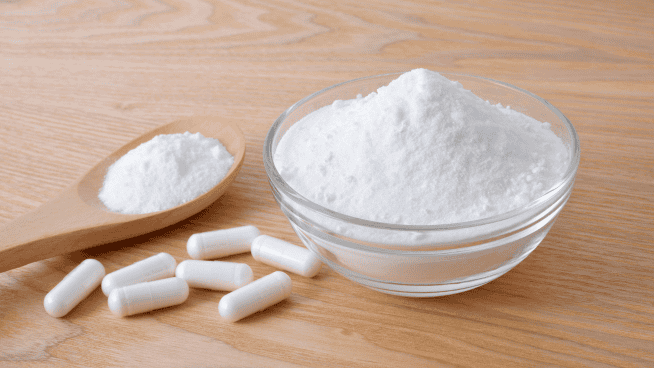When Is it Safe For Kids to Start Drinking Coffee?
The more we learn about coffee, the more evidence there is that it can support a healthy lifestyle.
The case for drinking coffee today may be stronger than ever before. Recent studies have found daily coffee consumption reduces risk of death due to heart disease, stroke, cancer, diabetes, respiratory disease and kidney disease. It’s also been connected with a reduced risk of depression, Alzheimer’s disease, Parkinson’s disease, cirrhosis and type 2 diabetes. On a day-to-day basis, coffee can improve memory, mood, energy levels, reaction time and athletic performance.
RELATED: Is Coffee Actually Healthy?
This is a drastic departure from the messaging of the late ‘70s and early ‘80s, a time period where coffee consumption was widely demonized due to poorly designed studies which didn’t account for high-risk behaviors some heavy coffee drinkers engaged in. “Earlier studies didn’t always take into account that known high-risk behaviors, such as smoking and physical inactivity, tended to be more common among heavy coffee drinkers,” the Mayo Clinic writes on the topic.
That period spawned several myths about coffee consumption. For example, the idea that coffee can stunt your growth or that a morning cup of coffee is dangerous for pregnant women. While these fears have since been debunked, the hard evidence of coffee’s incredible health benefits brings about a new question—how early is too early to start drinking coffee?
With the bevy of health benefits we know now coffee confers, it’s understandable that a young person may be interested in drinking it. Heck, some parents may even feel the urge to introduce their own kids to the beverage for its protective effects. However, there are definitely some risks to consider when it comes to young children and early adolescents consuming coffee.
Caffeine is a drug. Like any drug, everyone handles it differently. Caffeine’s impact largely depends upon body weight, and since kids and young adolescents are smaller than adults, caffeine typically impacts them more significantly. Common side effects of caffeine consumption include difficutly sleeping, nervousness and increased heart rate. More serious side effects, such as those that would be associated with a caffeine overdose, include extreme restlessness, heart arrhythmia, seizures and even cardiac arrest. Such cases are extremely rare, but the risk does exist if someone downs extreme amounts of caffeine. Obviously, if a young person tries coffee and experiences undesirable symptoms, they should stop immediately—as should any adult.
But if a young person is able to drink a bit of coffee without adverse effects, how much can they safely consume? A recent review published in the journal Food and Chemical Toxicology looked at 700 studies to determine what qualifies as “safe” caffeine consumption levels. Their findings indicated the following amounts of daily caffeine consumption to be safe as they’re not associated with “overt, adverse effects”:
- 400mg for healthy adults
- 300mg for pregnant women
- 2.5mg per kg for children and adolescents
To put those numbers into context, an 8-ounce cup of home-brewed black coffee typically contains about 95mg of caffeine. When the researchers looked at consumption beyond these levels, they found links to things such as anxiety, hypertension and reproductive issues.
It’s important to note that the study’s findings relate to body mass in children, not age. The average 7-year-old weighs about 50 pounds, which translates to roughly 23 kg. That means a limit of 57.5mg of caffeine per day would be appropriate for said child under these guidelines. While the American government doesn’t publish caffeine guidelines for children, other countries do. Canada, for example, recommends a limit of 45mg a day for 4-6 year olds, 62.5mg for 7-9 year olds and 85mg for 10-12 year olds. That’s about in line with the recommendations of the review.
But there are also risks that can come about even if a child or young adolescent stays within those limits. Like an adult, regular coffee consumption could eventually lead to a caffeine dependency. While not technically an addiction, caffeine dependence can result in symptoms like headache, irritability and lethargy during withdrawal. There’s also the risk of young people naturally gravitating towards coffee drinks stuffed with added sugar, such as Starbucks’ seasonal offerings. These drinks are little more than liquid junk food and no one should make them a regular part of their diet—especially children. But in terms of caffeine-containing beverages, a bit of regular coffee (or coffee cut with milk) is generally much more nutritious than soda or energy drinks. Coffee is actually the biggest source of antioxidants in the western diet. It’s also not at all uncommon for children in certain Latin American and European countries to be exposed to coffee much earlier than their American counterparts—it’s just part of their culture.
Coffee is a powerful beverage. It’s been proven to have a powerful beneficial effect on human health, but it can also have powerful negative effects when used irresponsibly. As for children and adolescents, if they are drinking coffee, great care must be taken to ensure they stick within the daily limit of 2.5mg of caffeine per kilogram of bodyweight. This translates to a very small amount of coffee.
For example, a kid who weighs 100 pounds should limit their caffeine consumption to no more than 112mg a day. Well, a Short Medium Roast Coffee from Starbucks packs 155mg of caffeine in an eight-ounce serving size. A Venti of the same roast, which is a 20-ounce serving, contains 410mg of caffeine. If a young person is going to consume coffee, their parents need to be vigilant about the serving size and also make sure there aren’t other unknown sources of caffeine in their diet which could subsequently take them over the daily limit. If that sounds like too much work, then simply not allowing your child to drink coffee is the simplest answer of all. They’ll have plenty of time to sip joe—and reap the benefits that come along with coffee drinking—when they hit their college years and beyond.
Photo Credit: Wavebreakmedia/iStock, Sidekick/iStock, theboone/iStock
READ MORE:
RECOMMENDED FOR YOU
MOST POPULAR
When Is it Safe For Kids to Start Drinking Coffee?
The more we learn about coffee, the more evidence there is that it can support a healthy lifestyle.
The case for drinking coffee today may be stronger than ever before. Recent studies have found daily coffee consumption reduces risk of death due to heart disease, stroke, cancer, diabetes, respiratory disease and kidney disease. It’s also been connected with a reduced risk of depression, Alzheimer’s disease, Parkinson’s disease, cirrhosis and type 2 diabetes. On a day-to-day basis, coffee can improve memory, mood, energy levels, reaction time and athletic performance.
RELATED: Is Coffee Actually Healthy?
This is a drastic departure from the messaging of the late ‘70s and early ‘80s, a time period where coffee consumption was widely demonized due to poorly designed studies which didn’t account for high-risk behaviors some heavy coffee drinkers engaged in. “Earlier studies didn’t always take into account that known high-risk behaviors, such as smoking and physical inactivity, tended to be more common among heavy coffee drinkers,” the Mayo Clinic writes on the topic.
That period spawned several myths about coffee consumption. For example, the idea that coffee can stunt your growth or that a morning cup of coffee is dangerous for pregnant women. While these fears have since been debunked, the hard evidence of coffee’s incredible health benefits brings about a new question—how early is too early to start drinking coffee?
With the bevy of health benefits we know now coffee confers, it’s understandable that a young person may be interested in drinking it. Heck, some parents may even feel the urge to introduce their own kids to the beverage for its protective effects. However, there are definitely some risks to consider when it comes to young children and early adolescents consuming coffee.
Caffeine is a drug. Like any drug, everyone handles it differently. Caffeine’s impact largely depends upon body weight, and since kids and young adolescents are smaller than adults, caffeine typically impacts them more significantly. Common side effects of caffeine consumption include difficutly sleeping, nervousness and increased heart rate. More serious side effects, such as those that would be associated with a caffeine overdose, include extreme restlessness, heart arrhythmia, seizures and even cardiac arrest. Such cases are extremely rare, but the risk does exist if someone downs extreme amounts of caffeine. Obviously, if a young person tries coffee and experiences undesirable symptoms, they should stop immediately—as should any adult.
But if a young person is able to drink a bit of coffee without adverse effects, how much can they safely consume? A recent review published in the journal Food and Chemical Toxicology looked at 700 studies to determine what qualifies as “safe” caffeine consumption levels. Their findings indicated the following amounts of daily caffeine consumption to be safe as they’re not associated with “overt, adverse effects”:
- 400mg for healthy adults
- 300mg for pregnant women
- 2.5mg per kg for children and adolescents
To put those numbers into context, an 8-ounce cup of home-brewed black coffee typically contains about 95mg of caffeine. When the researchers looked at consumption beyond these levels, they found links to things such as anxiety, hypertension and reproductive issues.
It’s important to note that the study’s findings relate to body mass in children, not age. The average 7-year-old weighs about 50 pounds, which translates to roughly 23 kg. That means a limit of 57.5mg of caffeine per day would be appropriate for said child under these guidelines. While the American government doesn’t publish caffeine guidelines for children, other countries do. Canada, for example, recommends a limit of 45mg a day for 4-6 year olds, 62.5mg for 7-9 year olds and 85mg for 10-12 year olds. That’s about in line with the recommendations of the review.
But there are also risks that can come about even if a child or young adolescent stays within those limits. Like an adult, regular coffee consumption could eventually lead to a caffeine dependency. While not technically an addiction, caffeine dependence can result in symptoms like headache, irritability and lethargy during withdrawal. There’s also the risk of young people naturally gravitating towards coffee drinks stuffed with added sugar, such as Starbucks’ seasonal offerings. These drinks are little more than liquid junk food and no one should make them a regular part of their diet—especially children. But in terms of caffeine-containing beverages, a bit of regular coffee (or coffee cut with milk) is generally much more nutritious than soda or energy drinks. Coffee is actually the biggest source of antioxidants in the western diet. It’s also not at all uncommon for children in certain Latin American and European countries to be exposed to coffee much earlier than their American counterparts—it’s just part of their culture.
Coffee is a powerful beverage. It’s been proven to have a powerful beneficial effect on human health, but it can also have powerful negative effects when used irresponsibly. As for children and adolescents, if they are drinking coffee, great care must be taken to ensure they stick within the daily limit of 2.5mg of caffeine per kilogram of bodyweight. This translates to a very small amount of coffee.
For example, a kid who weighs 100 pounds should limit their caffeine consumption to no more than 112mg a day. Well, a Short Medium Roast Coffee from Starbucks packs 155mg of caffeine in an eight-ounce serving size. A Venti of the same roast, which is a 20-ounce serving, contains 410mg of caffeine. If a young person is going to consume coffee, their parents need to be vigilant about the serving size and also make sure there aren’t other unknown sources of caffeine in their diet which could subsequently take them over the daily limit. If that sounds like too much work, then simply not allowing your child to drink coffee is the simplest answer of all. They’ll have plenty of time to sip joe—and reap the benefits that come along with coffee drinking—when they hit their college years and beyond.
Photo Credit: Wavebreakmedia/iStock, Sidekick/iStock, theboone/iStock
READ MORE:












